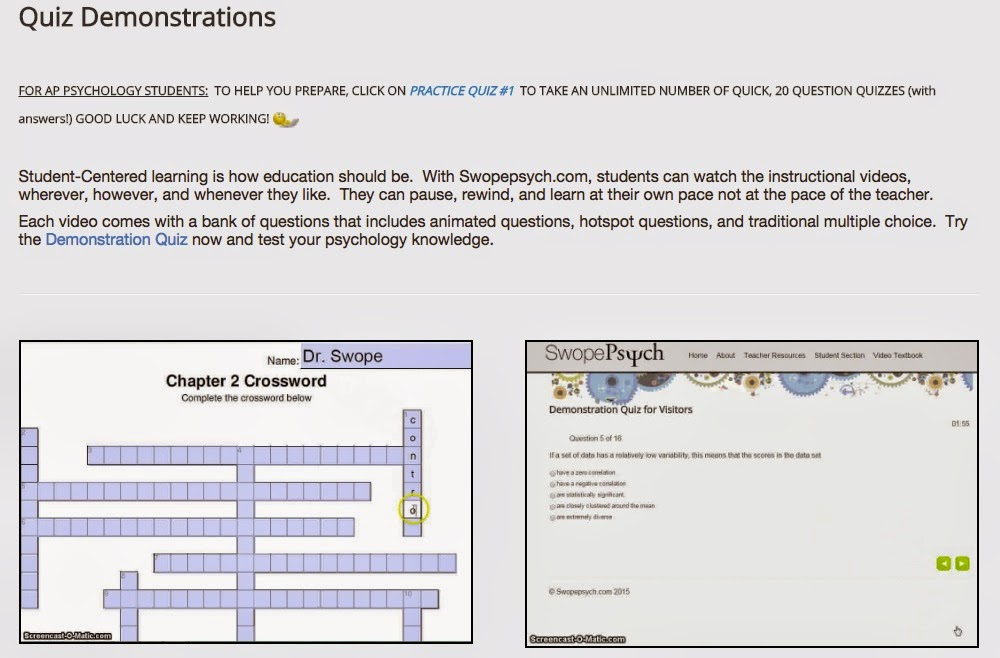 |
| Thanks to Aaron Collins for the inspiration for the image above. |
It's back! For the fourth consecutive year, Twitter will be abuzz with students looking for someone to assist them as they are reviewing for the AP Psych exam on May 4, 2015 - and "we" will be there to help them out. By "we" I mean myself, plus a whole bunch of other veteran AP Psych teachers, who are willing to offer advice, mnemonics, and just good explanations for confusing questions that vex students. By adding the hashtag #appsychreview to their tweets, students alert teachers they need help, and teachers reply with short answers and/or links to images, sites, or videos that help.
Here's an example of mine from last year:
The following is largely a repost from last year's post about #
appsychreview - if you have questions, please post them in the comments or e-mail them to me (Steve).
INFO FOR STUDENTS
-----------
1) Use #appsychreview to get help with questions you are struggling with. Maybe you can't tell the difference between, say, retrograde and anterograde amnesia. Well,
we can help with that. Or you need a way to remember Erikson's eight stages, and so
we can send you to see the great Dr. Britt.
2) DO NOT use #appsychreview for basic questions. Questions like "Who is Piaget?" or "What was Milgram's experiment about?" are ones that will either be ignored or at best you'll be re-directed to the Wikipedia pages for that subject.
3) Be considerate. If you have a dozen questions, don't post them all. Before posting, look for similar questions on #appsychreview - believe it or not, you're not the first asking about
Piaget's stages. Then post a question or two. Someone will probably answer your question within 24 hours - and if you don't see a reply to your tweet by then, feel free to send your tweet to me (
@highschoolpsych).
4) This is not an on-demand guaranteed service. People who currently teach or formerly taught AP Psych will answer your question as best they can. If you need more intensive help, there are
plenty of AP Psych review books to
choose from.
INFO FOR TEACHERS
------------
1) PLEASE DO NOT encourage your students to use #appsychreview to ask questions to gain extra credit in your class. One day two years ago we had more than 100 tweets in 15 minutes because a well-meaning teacher told his students they would get extra credit for doing so. This is a volunteer service of real teachers who are giving their time to help out students, not a bunch of automated robots.
2) The biggest question I get is:
how do I know I can trust that my students will get the correct answer? The short answer is you can't - there's no guarantee. But in the three years we've done this, I've never seen anyone give incorrect information. Sure, some folks give explanations in different ways than I would, but that's to be expected. What's more impressive is the dozens of tweets that I've read where *I* learned a brand new way to explain something, or about a new resource because another teacher pointed to it in her answer. If you see an answer you think is wrong, let me know.
3) If you're answering a question, it helps greatly to give a link to a site or to an image which helps to explain the concept. For example, the amazing
@mariavita1 gave
this great answer to a question about the phi phenomenon by giving a few words and then a link to a site that more fully explained it.
4) How do you answer a question? Just reply to the question and be sure to keep #appsychreview in the tweet. There's no application process and no minimum number to answer - just jump in when you can and help!
--posted by Steve






